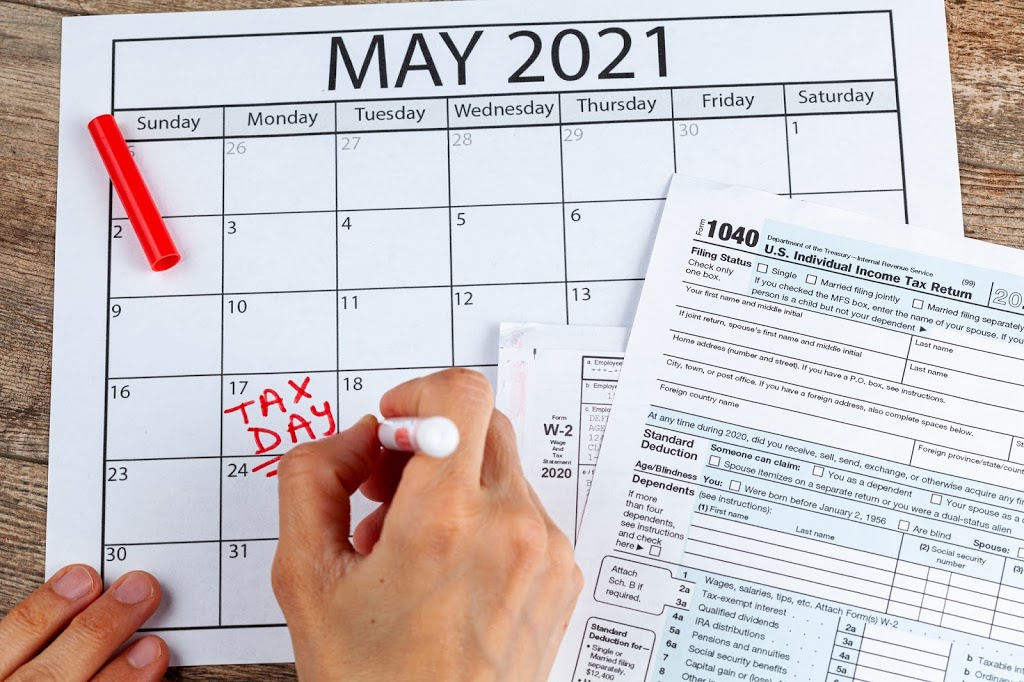The Internal Revenue Service tax filing deadlines are dates set well in advance in order to ensure every U.S. taxpayer has time to get their financial affairs in order. But the IRS also understands that sometimes people need an extension due to unplanned circumstances. As with the official tax filing date, extensions are also made public well in advance so that everyone can pay their tax duties. This year, the tax extension deadline is October 15, 2021.
However, life can bring unexpected circumstances, and some individuals, often due to things beyond their control, may miss this extension deadline too. In that case, you might wonder what to do. In this guide, we’ll look at how to approach a missed extension deadline and whether or not to still file.
What If You Miss The Extension?
Just because you missed the IRS tax filing extension deadline does not mean you’re exempt from filing taxes. The minimum for single filing status if under age 65 is $12,400, and $14,050 if age 65 or older for the tax year 2020. That means that if you earned more than that, you need to file a federal income tax return.
But even if your income fell below that figure, it’s worth your time to still file your taxes because you might be eligible for a refundable tax credit. For instance, the Earned Income Tax Credit (EITC) was designed for individuals with low to moderate-income. And if you’re eligible, you could receive a tax refund for the amount of your credit if the credit is more than the amount of taxes you owe.
If you don’t file, however, the IRS will not distribute this potential refund.
Will I Be Penalized for Missing the Extension?
Fear of a penalty is often what keeps people up at night and afraid to file their taxes. Here’s the good news. If you are owed a tax refund, there is no penalty for filing late even without applying for the extension. This applies to federal taxes only and might differ for the states.
Penalties are calculated based on tax amounts due. That means that if you know you owe and you’ve missed the tax deadline, you will be subject to a penalty fee.
What do the penalties for missing the tax extension deadline look like?
Should you file after the extension deadline and owe taxes, you need to be prepared for a potential of three penalty fees. Those include:
According to the IRS, this penalty is charged on returns filed after the extension date “absent a reasonable cause for filing late.” In other words, the taxpayer would need to provide proof of something the IRS deems a reasonable cause which it defines as:
- Fire, casualty, natural disaster, or other disturbances
- Inability to obtain records
- Death, serious illness, incapacitation, or unavoidable absence of the taxpayer or a member of the taxpayer’s immediate family
- Another reason which establishes that you used all ordinary business care and prudence to meet your Federal tax obligations but were nevertheless unable to do so.
Naturally, the IRS requires plenty of evidence to support such claims. Documents such as hospital records, court records, doctor’s notes, or documentation of a natural disaster should be gathered in order to defend your claim.
Should you qualify for none of the above, then the IRS states that 5% of the unpaid taxes for each month or part of a month that a tax return is late will be owed.
The failure-to-pay penalty is charged for failing to pay your tax by the due date. The IRS states that “the late payment penalty is 0.5% of the tax owed after the due date, for each month or part of a month the tax remains unpaid, up to 25%”.
But take note, should you fail to make good on your payment 10 days after the IRS issues a final notice of intent to levy or seize property, that 0.5% rate goes up to 1% per month. So again, it’s in a late taxpayer’s interest to address any payments as soon as possible to avoid incurring even higher penalties.
As with most bills, the IRS also charges interest on late payments. And all taxpayers should know that the interest rate for taxpayers other than corporations is the federal short-term rate plus 3%. This short-term rate is determined every three months.
How to get late filing help?
Taxes are confusing and it’s understandable if missed deadlines have you feeling anxious. But rather than ignore deadlines and IRS notices while penalties pile up, the best solution is to pay your taxes as soon as you are able to. This can be done online through many different software services or directly through the IRS website.
Or, should you need additional help, there are trusted tax experts to help. These individuals can help get you in compliance right away so you can move on and sleep better at night knowing your tax obligations have been taken care of.




